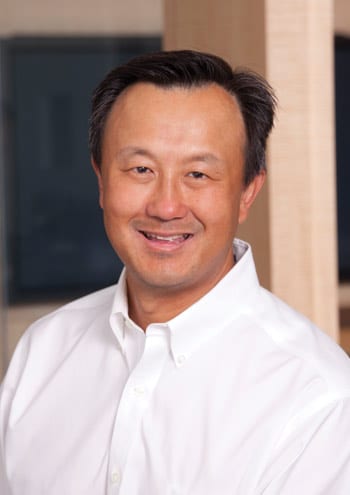
“A Berkeley Law education shouldn’t be just for people who can afford it out-of-pocket. That’s not what we’re about,” says incoming Boalt Hall Alumni Association (BHAA) Board President John Kuo ’88.
If not for the state support of public universities that kept tuition down, Kuo notes, he couldn’t have afforded to attend law school. An earnest appreciation for that opportunity and a commitment to extend it to future generations will motivate his agenda as BHAA president.
“Berkeley Law is more than just a three-year proposition,” Kuo says. “You become part of this community forever.”
One major priority for Kuo: stimulating a more engaged alumni base in the Bay Area and beyond. A cornerstone of that effort is a new portal and database to facilitate networking, collaboration, and mentoring between alumni and students worldwide.
Global outreach is also pivotal for Kuo, senior vice president and general counsel at Varian Medical Systems, which develops cancer radiotherapy equipment. To him, one of the biggest changes in the legal environment is how business has become more international.
“Berkeley Law is in a position to become one of the first truly global law schools,” he says.
In addition to the school’s location—at a trans-Pacific crossroads and within the technology hub of the world—Kuo cites the school’s LL.M., J.S.D., and Ph.D. programs. They expose students to the international environment and provide opportunities for JD students and lawyers from overseas to work together in a substantive way before entering the profession. Kuo is also excited about innovative collaborations between the law school’s centers and other UC Berkeley departments and regional business leaders. A notable example: the Berkeley Center for Law and Business and the Berkeley Center for Law & Technology’s partnership with the Nasdaq Entrepreneurial Center, a key part of the school’s new Startup@BerkeleyLaw program
These alliances enable students from different disciplines to work together on projects with real-world impact. “It’s like a mock inhouse environment,” says Kuo.
He sees the centers as think tanks and “a resource for society. Graduates educated in that environment have a huge advantage. But these things take money. We, as alumni, need to help drive these important programs that keep Berkeley Law at the forefront of legal education.”
—Rachel DeLetto
